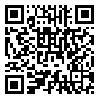Volume 3, Issue 3 (1-2018)
RSJ 2018, 3(3): 37-45 |
Back to browse issues page
Download citation:
BibTeX | RIS | EndNote | Medlars | ProCite | Reference Manager | RefWorks
Send citation to:



BibTeX | RIS | EndNote | Medlars | ProCite | Reference Manager | RefWorks
Send citation to:
The Effect of Intervention on Knowledge, Attitudes and Practice of Students Regarding Pediculosis. RSJ 2018; 3 (3) :37-45
URL: http://rsj.iums.ac.ir/article-1-91-en.html
URL: http://rsj.iums.ac.ir/article-1-91-en.html
Abstract: (4346 Views)
Background and aim: One of the most common diseases of primary school children is pediculosis (head lice). According to Health Organization reports, despite many efforts and spending a great deal, the disease has not yet been adequately controlled in different countries. The aim of this study was to investigate the effect of educational intervention on knowledge, attitude and practice of students about head pediculosis among primary school girls in Torbat Heydariyeh.
Materials and Methods: In this semi experimental, controlled trial study, 272 students (136 individuals in each group) were selected by cluster random sampling. The data collection tool was a valid and reliable questionnaire. The educational program included lecture, group discussion and role play, which was performed only in the intervention group and did not intervene in the control group. Questionnaires were completed in two groups before and after the intervention. Data were analyzed using descriptive and inferential statistics and analyzed by SPSS software.
Results: The results of the study showed that the mean scores of knowledge, attitude and practice of students after training in the intervention group increased and had a significant difference with the pre-training scores (p <0.05), but this difference was not seen in the control group ( 05/0 Conclusion: Modified education improves knowledge, attitude and practice and thus reduces the amount of infection to pediculosis. Accordingly, it is recommended that individual health education be included in educational books.
Materials and Methods: In this semi experimental, controlled trial study, 272 students (136 individuals in each group) were selected by cluster random sampling. The data collection tool was a valid and reliable questionnaire. The educational program included lecture, group discussion and role play, which was performed only in the intervention group and did not intervene in the control group. Questionnaires were completed in two groups before and after the intervention. Data were analyzed using descriptive and inferential statistics and analyzed by SPSS software.
Results: The results of the study showed that the mean scores of knowledge, attitude and practice of students after training in the intervention group increased and had a significant difference with the pre-training scores (p <0.05), but this difference was not seen in the control group ( 05/0
Type of Study: Research |
Subject:
Special
Received: 2018/01/20 | Accepted: 2018/06/3 | Published: 2018/06/3
Received: 2018/01/20 | Accepted: 2018/06/3 | Published: 2018/06/3
| Rights and permissions | |
 |
This work is licensed under a Creative Commons Attribution-NonCommercial 4.0 International License. |



